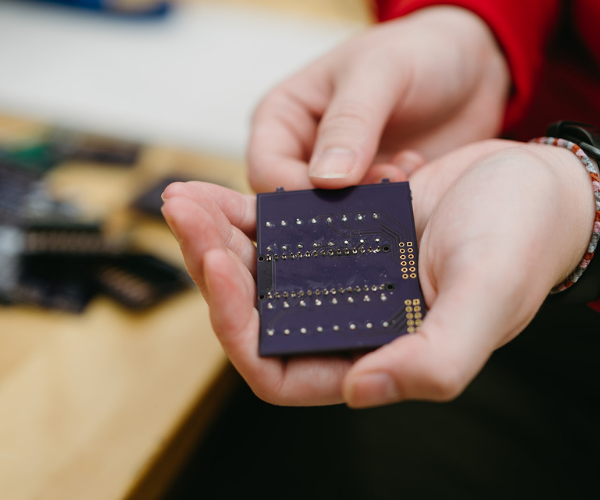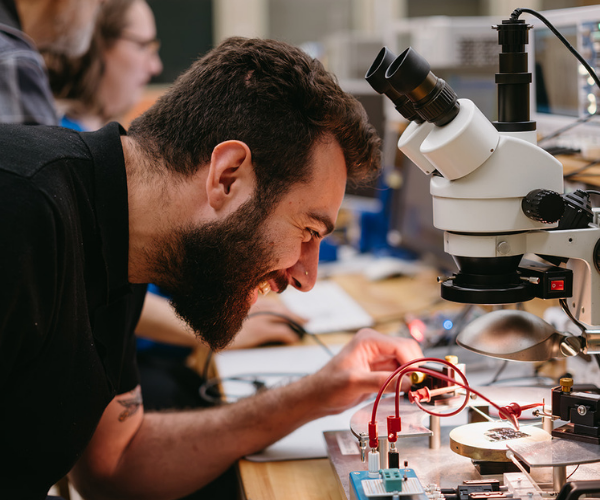Visit Carleton! Book your tour today.
Program Details
Engineering Physics is central to modern technology. Terabytes of data are processed every single second through precise control of electrons on a microchip. Magnetic resonance imaging (MRI) machines create images of what’s happening inside a human body by measuring changes in the spin of atomic nuclei. And antennas convert data transmitted on electromagnetic waves into colourful visuals and soothing sounds. Technologies like these have thoroughly transformed how we live (or modern life), and they all combine engineering acumen with an advanced knowledge of physics.
Labs and Facilities
In Carleton’s Bachelor of Engineering Physics program, you’ll learn the semiconductor and electromagnetic fundamentals that underpin advanced technology. An Engineering Physics degree will prepare you for a career in next generation technologies, such as quantum devices and organic semiconductors.
Students have access to Carleton University’s Microfabrication facility, one of the only integrated circuit manufacturing facilities at any Canadian university.
Co-op
Carleton offers students a paid Co-op option with work terms of 4, 6, 8, 12 or 16 months.
Work Experience
Ottawa is home to one of Canada’s largest concentrations of government agencies and high-tech companies. Located near campus is Kanata North, Canada’s largest technology park—offering Carleton students a direct pipeline to hundreds of companies looking for talent in engineering physics.

Get started in Carleton360 to receive tailored information on our programs, student services and community.

Career Outcomes
Explore your passions, refine new skills and discover the career that’s right for you.
Carleton’s location near Canada’s high technology centre at Kanata North enables you to develop contacts that could lead to opportunities during work terms and after graduation.

Sample Courses
ELEC 3105 - Electromagnetic Fields
Vector calculus: gradient, divergence, curl, integration of vector fields. Electrostatics, magnetostatics. Boundary conditions. Poisson's and Laplace's equations: method of images, separation of variables, iterative method. Electric and magnetic properties of matter. Magnetic circuits. Lorentz force. Motional emf, electromagnetic induction. Maxwell’s equations.
ELEC 4704 - Nanoscale Technology and Devices
Engineering at the nanoscale. Quantum confinement and the effect of scale. Analysis tools: microscopy, spectroscopy. Fabrication: thin films, nanoparticles, nanotubes, graphene, organics. Structures and properties: quantum wells, nanocrystals, nanostructuring. Applications and devices: electronics, optoelectronics, photonics.
Visit the Undergraduate Calendar to view a comprehensive list of course offerings for this program and discover the exciting things Carleton students are learning in the classroom!

